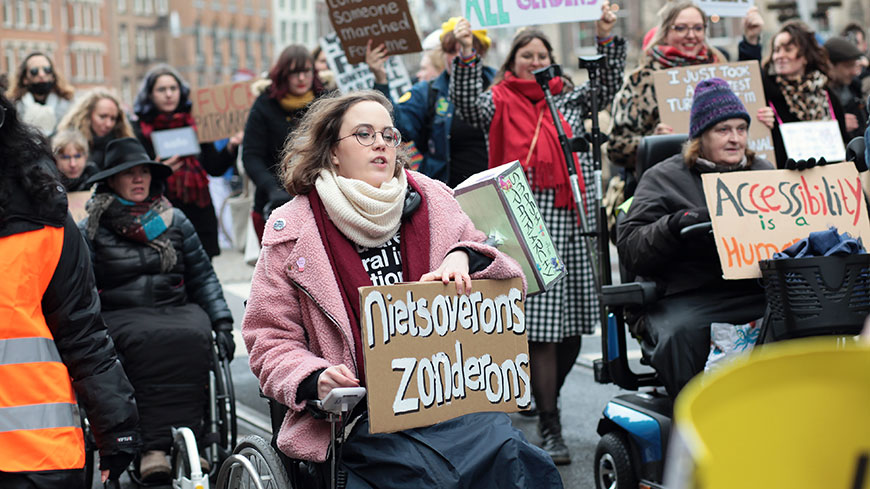В этом году мы отмечаем Международный день людей с ограниченными возможностями в то время, когда пандемия COVID19 все еще свирепствует в Европе. Пандемия непропорционально сильно затронула людей с ограниченными возможностями и обнажила все ранее существовавшие недостатки в государствах-членах Совета Европы.
Далее на английском языке.
Among many others, these failings include the absence of disability-inclusive emergency preparedness; lack of accessibility; discrimination in access to health care; a failure to implement the right of persons with disabilities to live independently and be included in the community; insufficient access to information; and inadequate participation and involvement of persons with disabilities in decision-making processes.
While these issues were magnified by the pandemic, none of them is new. In fact, they are all covered by obligations enshrined in international human rights standards, particularly the United Nations Convention on the Rights of Persons with Disabilities, which Council of Europe member states are already bound by. The COVID19 pandemic should be a lesson to all of us that these standards are not just aspirational ideals: failure to implement them leads to suffering and loss of life, which could and should have been avoided or alleviated.
While we all wish to go back to a semblance of normality, let us not lose sight of the fact that, as far as persons with disabilities are concerned, the post-COVID19 world has to look very different from the pre-pandemic reality, with a renewed commitment to finally deliver on what we have signed up to.



